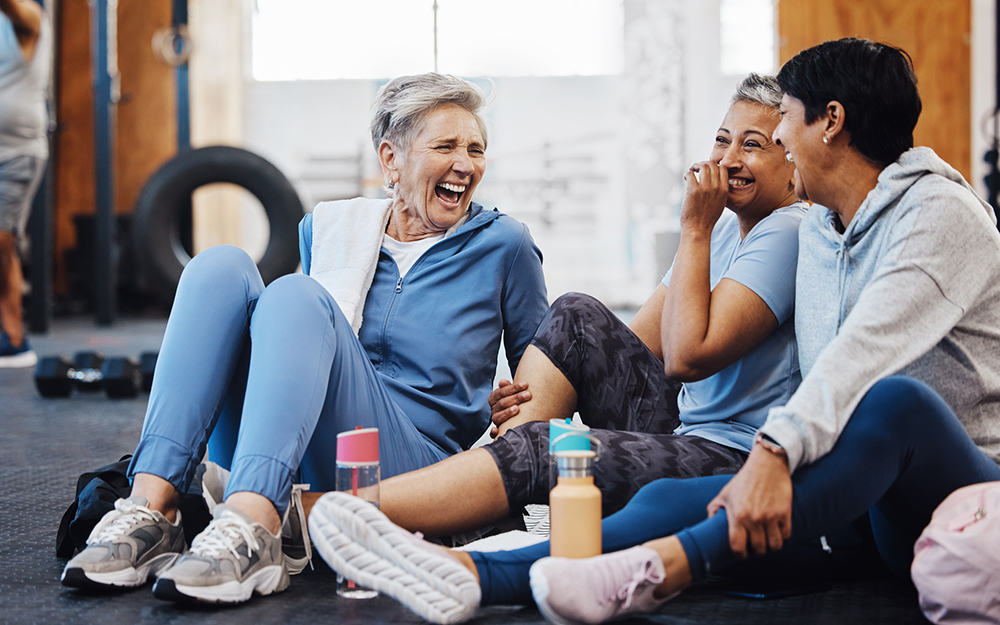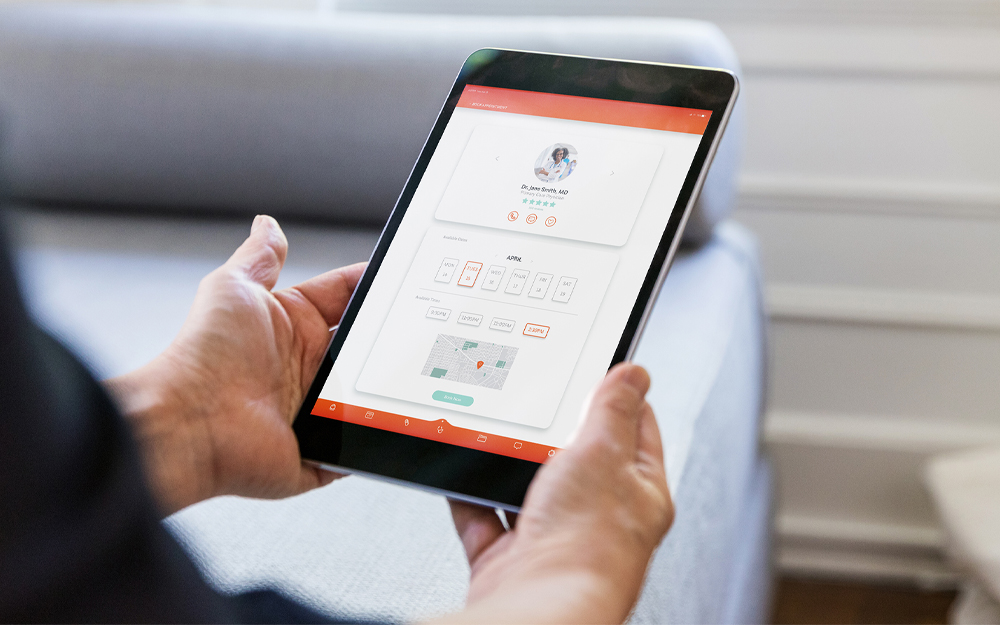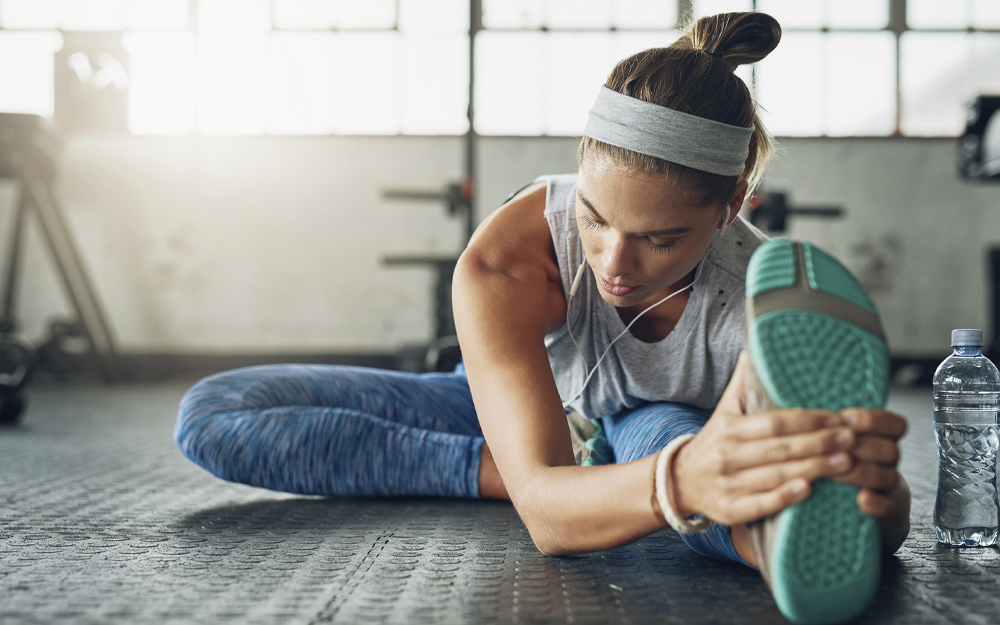A Health Guide for Women in Their 50s and 60s
Date
May 7, 2024

Date
January 9, 2024
Credits
Medical providers featured in this article




In Brief
{{cta-block}}
After reaching age 50, women may focus on health issues that they never considered before—such as bone density or vaginal dryness—as they enter menopause. They may begin gaining weight, although they aren’t eating or exercising differently. Many women realize prioritizing their health and practicing self-care in their 50s and 60s should help them live healthier, more active lives.
“Protecting your sleep, moving your body and eating healthily should be top of mind,” said Eynav Accortt, PhD, a clinical psychologist and director of Cedars-Sinai’s Reproductive Psychology Program. “These things have always been important, but they become even more important in your 50s and 60s.”
{{providers}}
Menopause Has Widespread Effects
The average American woman stops having menstrual periods for 12 months by age 51. This change, known as menopause, affects hormone levels. In menopause, women produce significantly less estrogen, which may cause hot flashes and is linked to other health concerns.
“Estrogen is important for heart health to prevent heart attack and stroke,” said Gabriela Dellapiana, MD, a maternal-fetal medicine specialist at Cedars-Sinai. “After 50, you should consume less sodium because of your higher risk for heart disease. Limit it to 1,500 mg daily.”
Menopause negatively impacts bone health. Increasing your calcium intake and staying physically active should help.
“The first four to eight years after menopause, you have the most rapid decline of bone mineral density because of sudden decreases in estrogen,” Dellapiana said. “At 50, you should get 1,200 mg of calcium daily instead of 1,000 mg. Weight-bearing exercise helps reduce the risk of losing bone health as quickly.”
Urinary tract infections may become more common when estrogen levels drop.
“Decreased estrogen allows bad bacteria in the vagina to overtake good bacteria. It also causes thinning of the tissue within the vagina and of the urethra, the tube that lets urine leave your bladder and your body,” said Brittni Boyd, MD, a urogynecologist at Cedars-Sinai. “Because the vagina and rectum are close to the urethra and the urethra is not as robust as it was prior to menopause, harmful bacteria can get in and cause infection.”
Menopause-related estrogen shifts may thin vaginal tissue, causing pain with intercourse. Low-dose vaginal estrogen, available in topical creams or vaginal suppositories, may reduce the frequency of UTIs and improve vaginal dryness.

Mind Your Mental Health
Menopause-related hormone shifts or other life changes may contribute to depression or anxiety in your 50s or 60s. Seek help from your doctor if you experience problems.
“If you’ve got the financial strain of sending your kids to college, stress can be high,” Accortt said. “But it’s a myth that everybody is depressed because of an empty nest. Many couples feel like it’s their time to travel, live it up, doing things they could never afford while raising children.”
Physical activity contributes to mental wellness, so stay active.
“There are decades of research on exercise and associations with improved mood,” Accortt said. “It’s one reason why exercise should continue to be a priority in your 50s and 60s.”
Tweak Diet and Exercise Routines
Because your metabolism slows when you reach menopause, you may need to consume fewer calories to maintain your current weight.
“Between ages 19 and 30, you’re generally allotted 2,000 calories per day,” Dellapiana said. “When you’re 50 and above, it’s 1,600 calories. Being cognizant of how you accumulate calories can help you make better food choices. Prioritize nutrient-dense foods, not filler foods.”
Don’t decrease your physical activity levels: Keep aiming for 150 minutes of moderate-intensity exercise weekly, plus two days of muscle-strengthening activities. Once you turn 60, include balance-related exercises.
“That will help reduce the risk of falls as you get older,” Dellapiana said. “Try standing on one leg while holding onto a chair. Strengthening your core muscles—your abdomen, back and glutes—is also important for balance.”
Seek Help for Bladder Issues
After 50, some women experience overactive bladder. You may need to pee more often, including after bedtime. Stress incontinence (leaking when you cough or sneeze) and urge incontinence (a sudden feeling that you have to go) are also more common. Adjusting certain habits may improve your symptoms.
“Stopping fluids two to three hours before bedtime and avoiding bladder irritants like coffee, caffeinated soda and artificial sweeteners helps,” Boyd said. “Weight gain usually makes symptoms worse, but weight loss may make symptoms better.”
If lifestyle changes don’t help, ask your doctor about treatments for overactive bladder.
Women and Heart Disease
A woman’s heart disease risk may increase once she reaches menopause, typically in her early 50s. Women have high levels of the hormone estrogen during their reproductive years, which provides some protection against heart disease. Estrogen levels drop significantly at menopause.
Heart disease is the No. 1 killer of women in the U.S., and Black and Latin women have higher rates of heart disease than white women. Women with diabetes or high blood pressure, and those who are overweight or obese, are at increased risk. These healthy habits may decrease your risk:
- Get more physical activity: Do 150 minutes of moderate-intensity exercise weekly, plus muscle-strengthening exercises twice a week. Walking 30 minutes daily should help you meet this goal. Finding other ways to move may also help decrease your risk. Take the stairs instead of an elevator. Go inside the bank instead of using the drive-through lane. Pace when you get work phone calls, to reduce how often you sit.
- Manage Stress: Find 10 minutes daily to practice relaxation, including deep breathing, meditation or reading. Talk to a close friend or family member about your stressors and reach out for professional help if stress levels are interfering with your functioning.
- Eat a healthy diet: Follow a low-salt plant-based diet, choosing fruits, vegetables, nuts, beans and whole grains, plus some fish and poultry. Eat whole foods to limit the amount of salt that you consume. (Highly processed foods are often high in salt.) Cut back on saturated fat, found in red meat, butter and certain sweets.
- Reach a healthy weight: When you’re overweight, your heart works harder, and you’re more likely to have high blood pressure. Your doctor may recommend that you lose 5-10% of your weight to improve your heart health and blood pressure levels. A healthy diet, regular exercise and a supportive network of family and friends may help you succeed.
- Get enough sleep: Chronic sleep deprivation may increase the risk of high blood pressure and heart disease. Strive for seven to nine hours of rest nightly, making sleep a priority. You may sleep more easily if you exercise regularly and find ways to lower stress levels.
- Manage your blood pressure: If you don’t see your doctor regularly, you may never know that you have high blood pressure. This “silent killer” increases the risk of heart attack and stroke. Healthy lifestyle habits—a low-salt diet and regular exercise—may help improve your blood pressure. Medication may help, too.
- Control your blood sugar: High blood-sugar levels may be a sign that you’re at risk of diabetes, a condition that’s linked to heart disease. Your doctor can tell you if your blood-sugar levels are healthy. Diet and exercise may help improve your numbers.
- Lower your cholesterol: Cholesterol is a sticky, waxy substance that travels through the bloodstream. It’s found in foods with saturated fat, such as red meat. Everyone needs some cholesterol, but if your levels are too high, it may build up on the inner walls of your arteries. When cholesterol narrows the arteries, it increases the risk of heart disease. Dietary changes may help lower your cholesterol levels. Medication may help, too.
- Quit smoking: Tobacco and chemicals in cigarette smoke are damaging to your heart and blood vessels. If you need help quitting, seek a support group or ask your doctor for assistance. Nicotine patches or prescription medication may help you break the habit.
Don’t Obsess About Prolapse
Sometimes, weak pelvic floor muscles lead to prolapse, when organs in the pelvic cavity drop. You may notice a bulge in your vaginal region.
Prolapse is common, especially among those who were previously pregnant. It may be frightening to feel a vaginal mass, but prolapse isn’t problematic.
“As long as you’re emptying your bladder normally, which we always test for, prolapse is not dangerous,” Boyd said. “You may feel isolated, but prolapse is very common.”
More from this series: How Women Can Strengthen Their Health at Any Age
Protect Yourself From STIs
After menopause, there’s no risk of pregnancy, so you may forget about birth control. However, if you have a new sexual partner, birth control that creates a barrier (such as condoms or dental dams) helps reduce the spread of sexually transmitted infections (STIs).
“There are higher transmission rates among people in their 20s, but people in their 50s or older aren’t immune to STIs,” said Natasha Schimmoeller, MD, a Cedars-Sinai OB-GYN.
Prioritize Skin Care
Skin-care needs change as people get older. After menopause, you may notice less acne, but your skin may seem drier, and you may develop fine lines or wrinkles.
“Every decade, our skin gets drier and drier, because it makes less of the natural protecting factors that keep it moist,” said Sravya Bhatia, MD, a dermatologist at Cedars-Sinai. “You can use a thicker moisturizer, if you’re not worried about acne. Retinols and retinoids may help reduce fine lines.”
Adjusting your shower routine may help minimize dry, itchy skin: Use warm water instead of hot, shorten your showers and stop exfoliating.
“Exfoliator brushes can be irritating as your skin changes. A soft cloth is better,” Bhatia said. “Hot water strips your skin of natural oils, which can increase dryness.”
Fragrance-free moisturizing soap is gentle on the skin and also should help.






